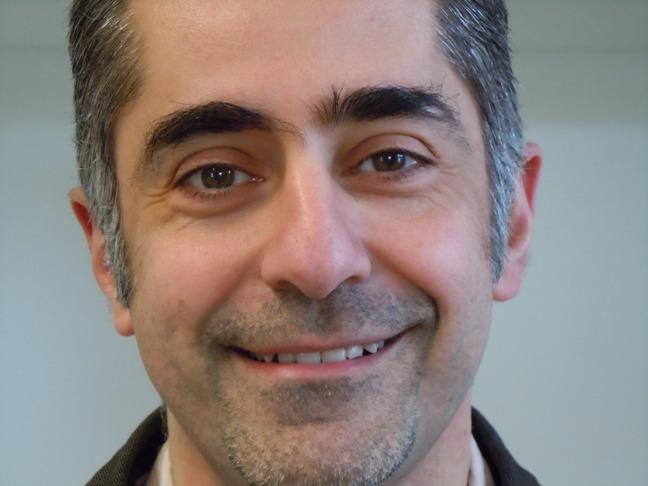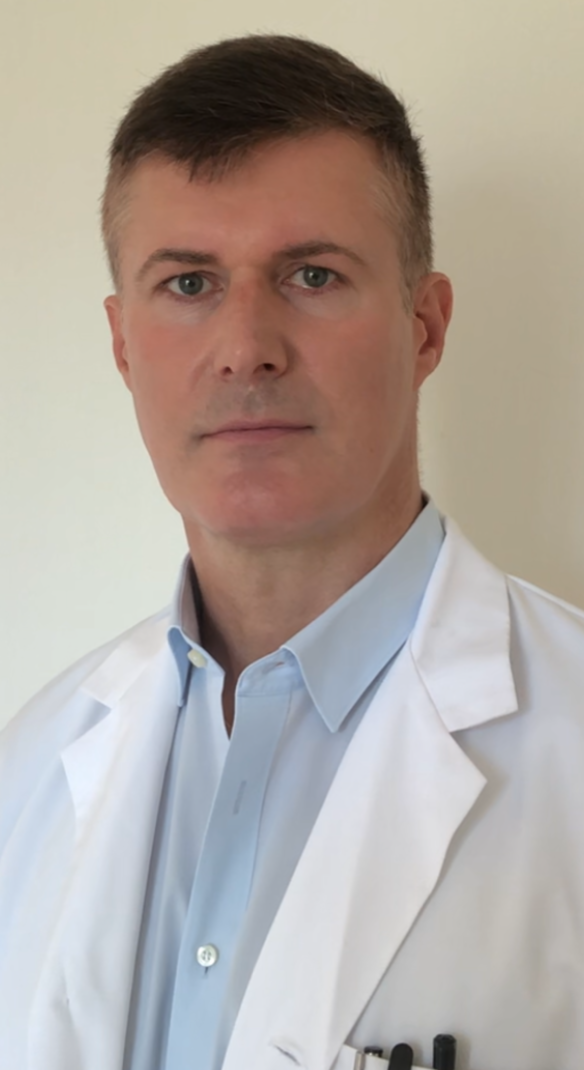Speakers and Abstracts
(Speakers are listed in the order of the programs’ sessions)
17:10 - 17:30 Thrombosis and Coagulopathy in COVID-19

Bruno Megarbane, MD, PhD
Dr. Bruno Megarbane is Professor of critical care medicine at Paris-Diderot University and directs a research team at INSERM UMRS-1144. He is the Head of the Department of Medical and Toxicological Critical Care at Lariboisiere Hospital, Paris, France. He conducted several clinical and experimental studies in clinical toxicology.
In the recent epidemic, he managed more than 400 severe COVID-19 patients in the intensive care unit and published several works on complications and management of Sars-Cov-2 infection.
Abstract
In COVID-19 patients, a high prevalence of venous thromboembolic events has been reported that markedly contributes to the high-rate mortality. High-risk thrombosis is related to endothelial cell activation and hypercoagulability resulting from the imbalance between procoagulant factors and natural coagulation inhibitors. Additional abnormalities have been described including impairment of von Willebrand factor/ADAMTS13 axis and high prevalence of antiphospholipid antibodies; however, their exact contribution to thrombotic complications is still unclear. This presentation will briefly review the different observations and hypotheses supporting such disorders.
17:40 - 18:00 COVID-19: mRNA Vaccines

Steve Pascolo, PhD
Trained as an immunologist at the Pasteur Institute (Paris, France), Dr. Steve Pascolo used mouse models to test and develop mRNA-based vaccines (direct injection of mRNA) during his post-doc in Tuebingen, Germany from 1998 till 2000. In 2000, he co-founded CureVac with Dr. Hoerr and Dr. von der Mulbe. Dr. Pascolo was Chief Scientific Officer (CSO) of the company from 2000 till 2006, developing the technology, implementing the worldwide first GMP production of mRNA and performing the worldwide first clinical studies where humans (including himself) got injections of in vitro transcribed mRNA. In 2006, he joined the oncology department of the University Hospital of Zurich, Switzerland and continued the development of immunotherapies based on RNA. In 2008, he founded Miescher Pharma to support this work. In 2017, Dr. Pascolo implemented in Zurich an academic mRNA platform https://www.cancer.uzh.ch/en/Research/mRNA-Platform.html. In collaboration with several research and clinical departments in Zurich he optimizes, tests and implements mRNA based therapies.
Abstract
Although mRNA vaccines have been published in 1993, their development has been hindered by the prejudice associated to the supposed fragility of mRNA. Actually, mRNA is a very robust biomolecule (it can be heated up to 90 degrees, frozen, lyophilized), easy to manufacture even at high scale and capable to lead to potent protein expression once administered naked or in nanoparticle formulations. Private investments in companies (for example BioNTech, CureVac and Moderna) have allowed to develop the potential of mRNA based therapies. The safety, versatility and efficacy of mRNA-based vaccines was evidenced during the COVID-19 pandemic: less than one year after the publication of the sequence of SARS-CoV-2, an mRNA vaccine against COVID-19 was approved and marketed. More mRNA vaccines (against infectious diseases and cancer) are in clinical developments and are expected to be approved in the coming years. In addition, mRNA-based therapies using non-immunogenic formulations of mRNA are being developed. Thus, the potential of synthetic mRNA in medicine is just starting to be unraveled and this versatile biomolecule is expected to be the active pharmaceutical ingredient in many future prophylactic and therapeutic drugs.
18:15 - 18:35 Genetic Defect & Severe COVID-19 in Young Men

Alexander Hoischen, PhD
Alexander Hoischen’s research group ‘Genomic Technologies and Immuno-Genomics’ (https://www.radboudumc.nl/en/immuno-genomics) has expertise in the identification of rare disease genes using latest genomics tools – since recently with a particular focus on immune-related disease genes. We have been the first identifying a disease causing dominant de novo mutation for a Mendelian disorder by exome sequencing [1] followed by the identification of several disease genes for rare diseases [2-5]. Following a six months’ research stint in 2013 in the laboratories of my collaborators Prof. Eichler and Prof. Shendure (UW, Seattle; USA), I established the latest technology for accurate and large scale targeted re-sequencing (smMIPs) in Nijmegen. Recently we started to apply long-read sequencing and long-read mapping to unsolved rare disease cases [6-7].
After we applied latest genomic technologies successfully in the research of rare diseases, e.g. WES [e.g.:1-5]; and MIPs [e.g.:8-11]; these were subsequently integrated into routine diagnostics, e.g. WES [e.g.:12-14]; and MIPs [15-16]. My research group now focuses on the genetic basis of immune diseases [e.g.:17-18], with the most recent identification of a novel immunodeficiency that predisposes men to severe COVID-19 [19].
In the last years we have shown that applications of novel and disruptive technologies allows new scientific insights and rapid translation into clinical and diagnostic practice at unprecedented speed. As part of my role in rare disease genomics I co-lead a work package in the EU-funded H2020 project SOLVE-RD (www.solve-rd.eu). I was also awarded the full PI status at the Radboudumc from 2019 onwards.
Please click here for references.
Abstract
Background and aims: Severe COVID-19 can occur in younger, predominantly male, patients without pre-existing medical conditions. Some individuals may have primary immunodeficiencies that predispose to severe infections caused by SARS-CoV-2. This study aimed to explore the presence of genetic variants associated with primary immunodeficiencies among young male patients with COVID-19.
Methods: In this case series, brother pairs were selected that consisted of young men (age <35 years) without relevant medical history who were admitted to the ICU due to severe COVID-19. Rapid clinical whole-exome sequencing was conducted to identify a potential monogenic defect. Subsequently, basic genetic and immunological tests were performed in primary immune cells isolated from patients to characterize any immune defects.
Results: The four included male patients had a mean age of 26 years, none had previous relevant medical history and all required mechanical ventilation at the ICU due to severe COVID-19. Rapid clinical whole-exome sequencing of the patients and segregation in available family members identified loss-of-function variants of the X-chromosomal TLR7. In patient primary peripheral blood mononuclear cells, downstream type I-interferon signaling was transcriptionally downregulated, as measured by significantly decreased mRNA expression of IRF7, IFNB1 and ISG15 upon stimulation with the TLR7 agonist imiquimod. Furthermore, the production of the type II interferon IFNg was decreased in patients.
Conclusions: In this case series of 4 young male patients with severe COVID-19, we identified a novel immunodeficiency associated with rare putative loss-of-function variants of X-chromosomal TLR7 that is characterized by impaired type I and II interferon responses.
18:50 - 19:10 MIS Associated with COVID-19 in Children

Lauren Henderson, MD, MMSc
Dr. Henderson is an Assistant Professor of Pediatrics at Harvard Medical School and a pediatric rheumatologist at Boston Children’s Hospital. She graduated from Harvard Medical School in 2008 and completed residency in pediatrics and fellowship in pediatric rheumatology at Boston Children’s Hospital. Currently, she runs a translational laboratory in the Division of Immunology at Boston Children’s Hospital and her research focuses on T cells in juvenile idiopathic arthritis. She also serves as the Chair of Translational Research in the Childhood Arthritis and Rheumatology Research Alliance (CARRA).
Abstract
In April 2020, a hyperinflammatory syndrome in children with an epidemiologic link to SARS-CoV-2 infections was identified. Affected children present with fever, mucocutaneous manifestations, high levels of systemic inflammation, and multiorgan dysfunction, with some becoming critically ill. This presentation will cover the epidemiology and clinical presentation of MIS-C as well as the management of patients with this condition.